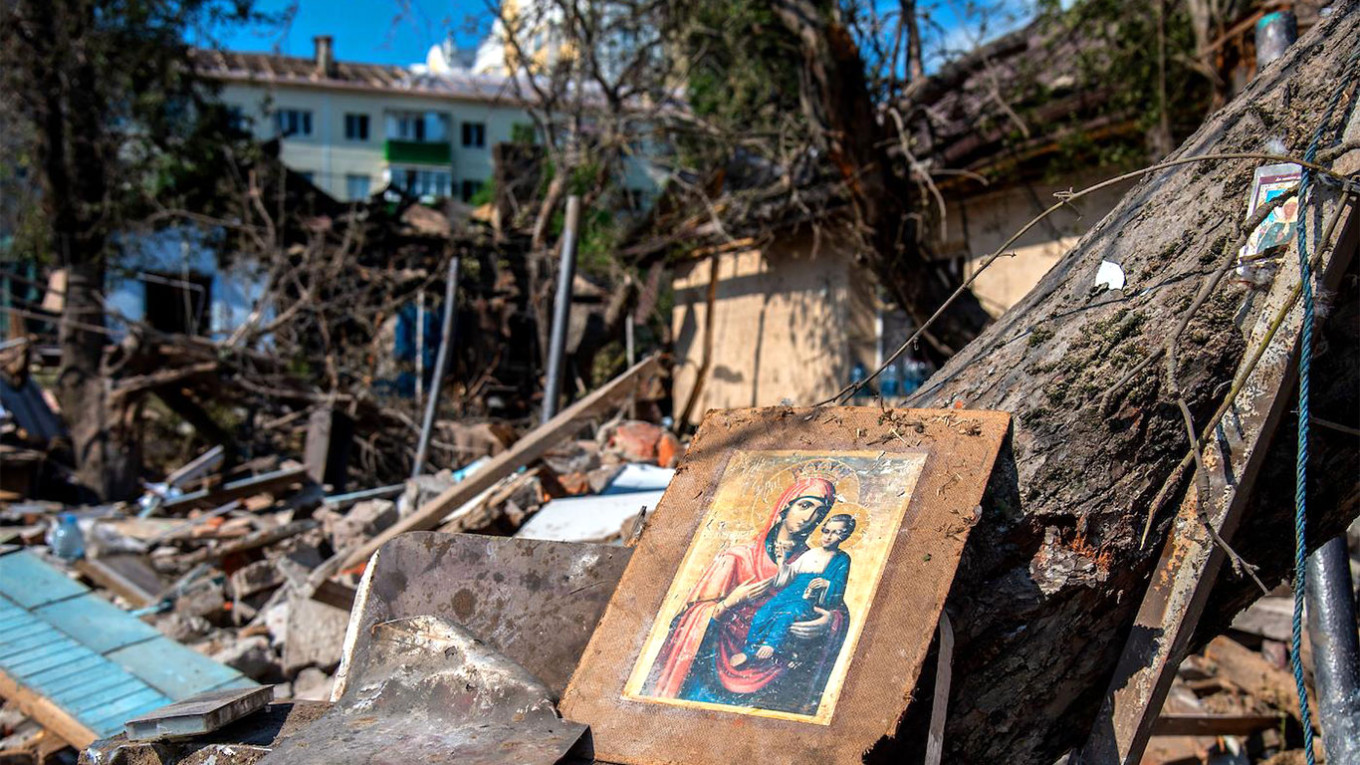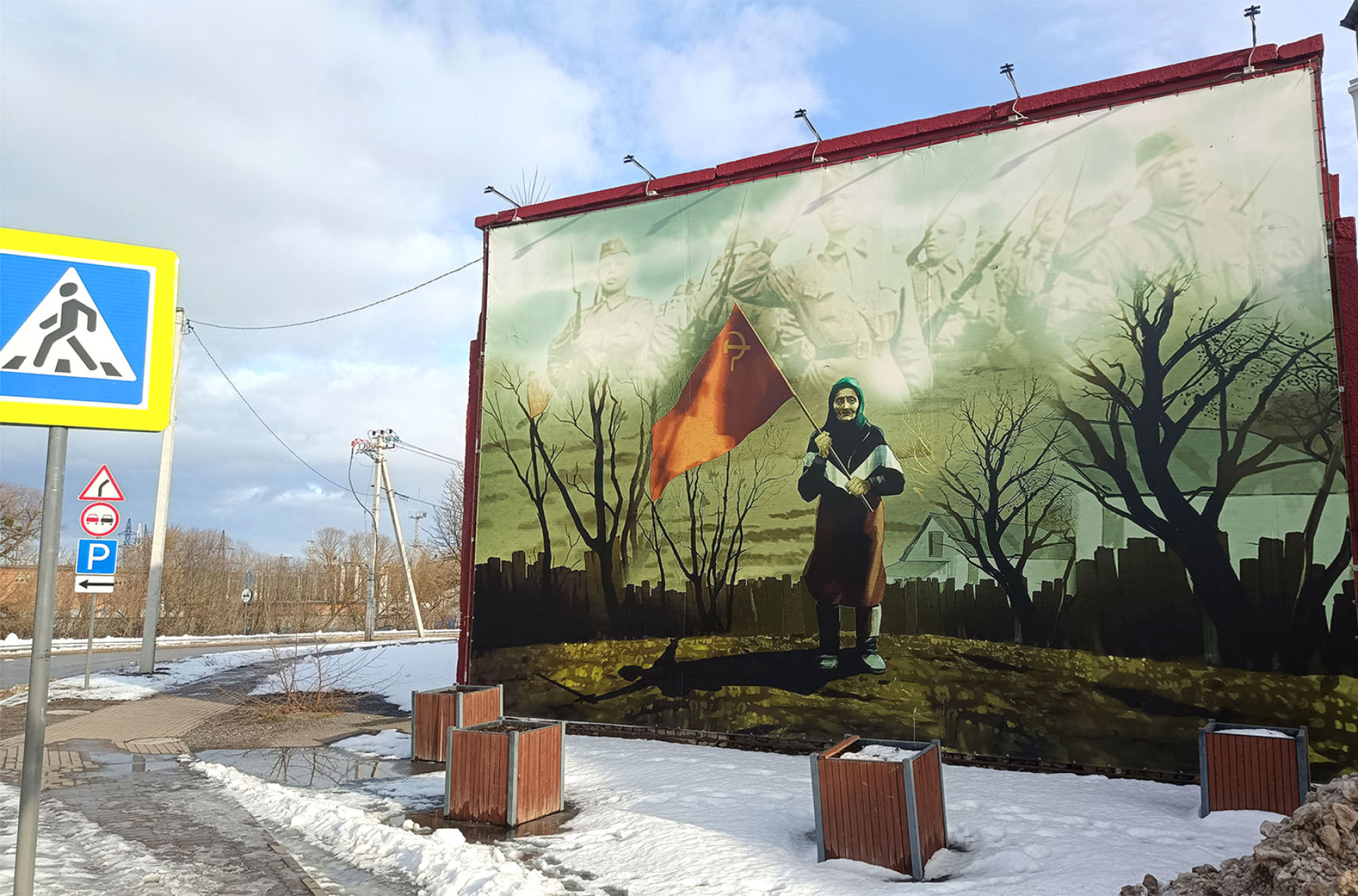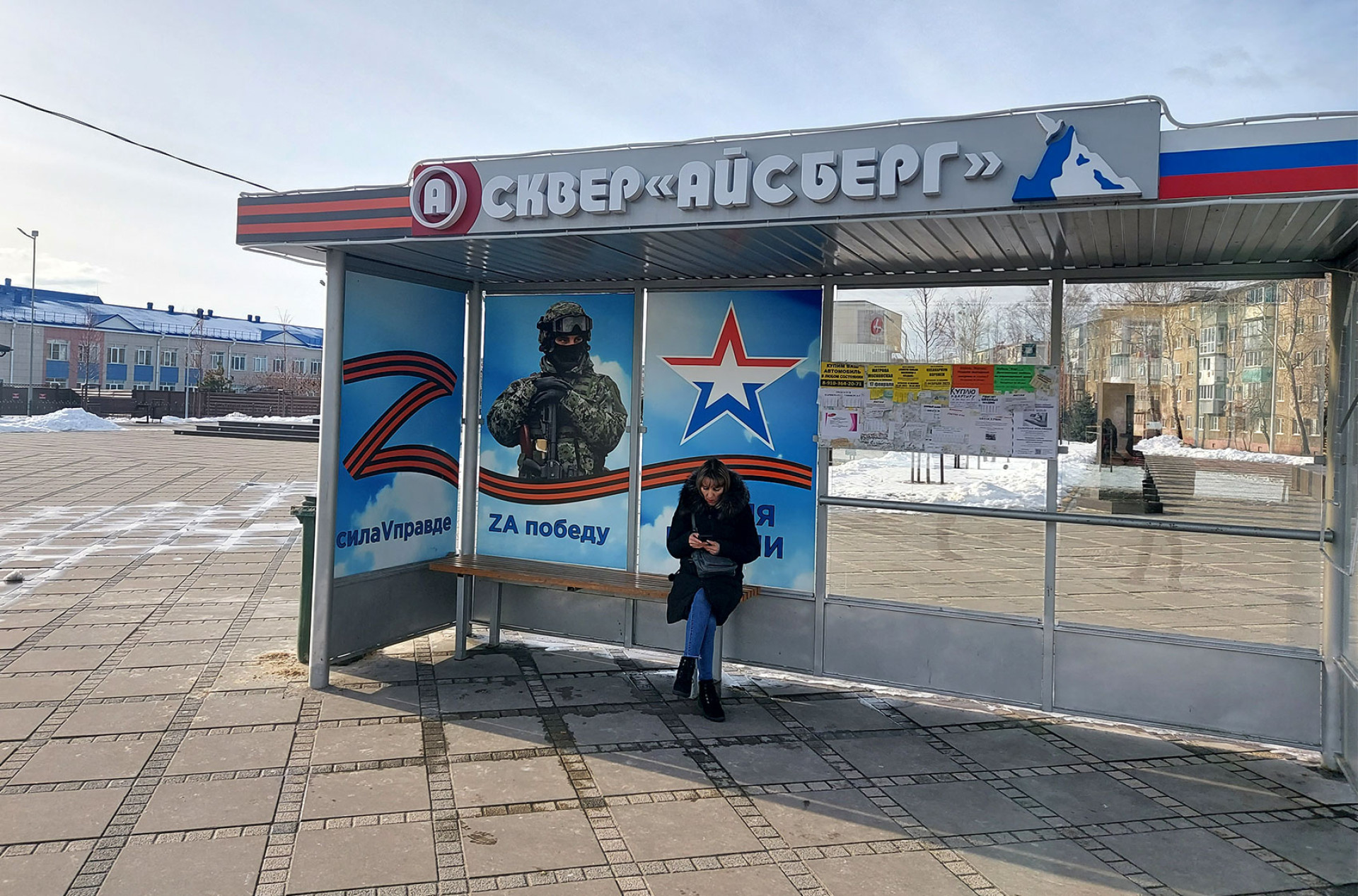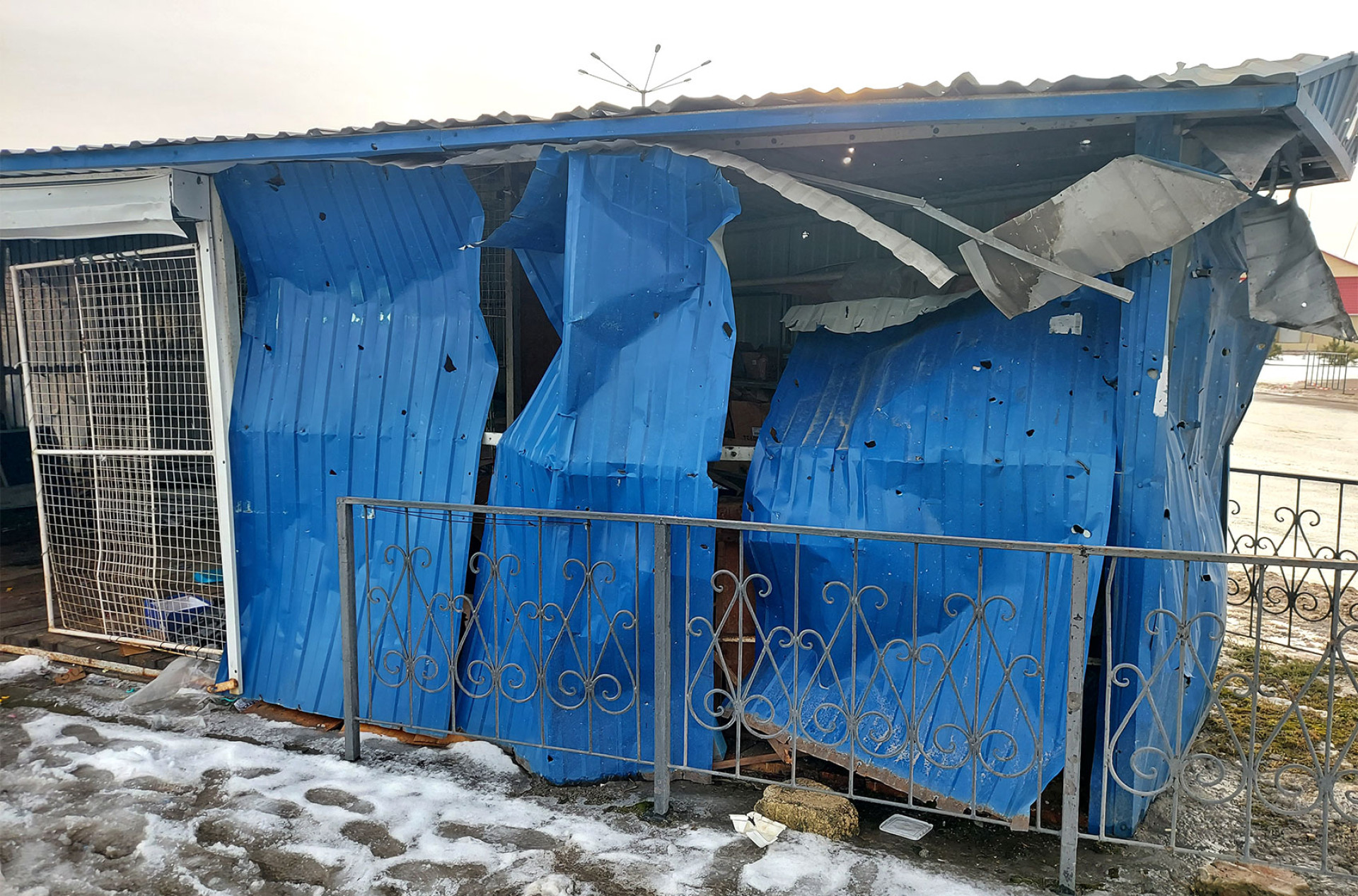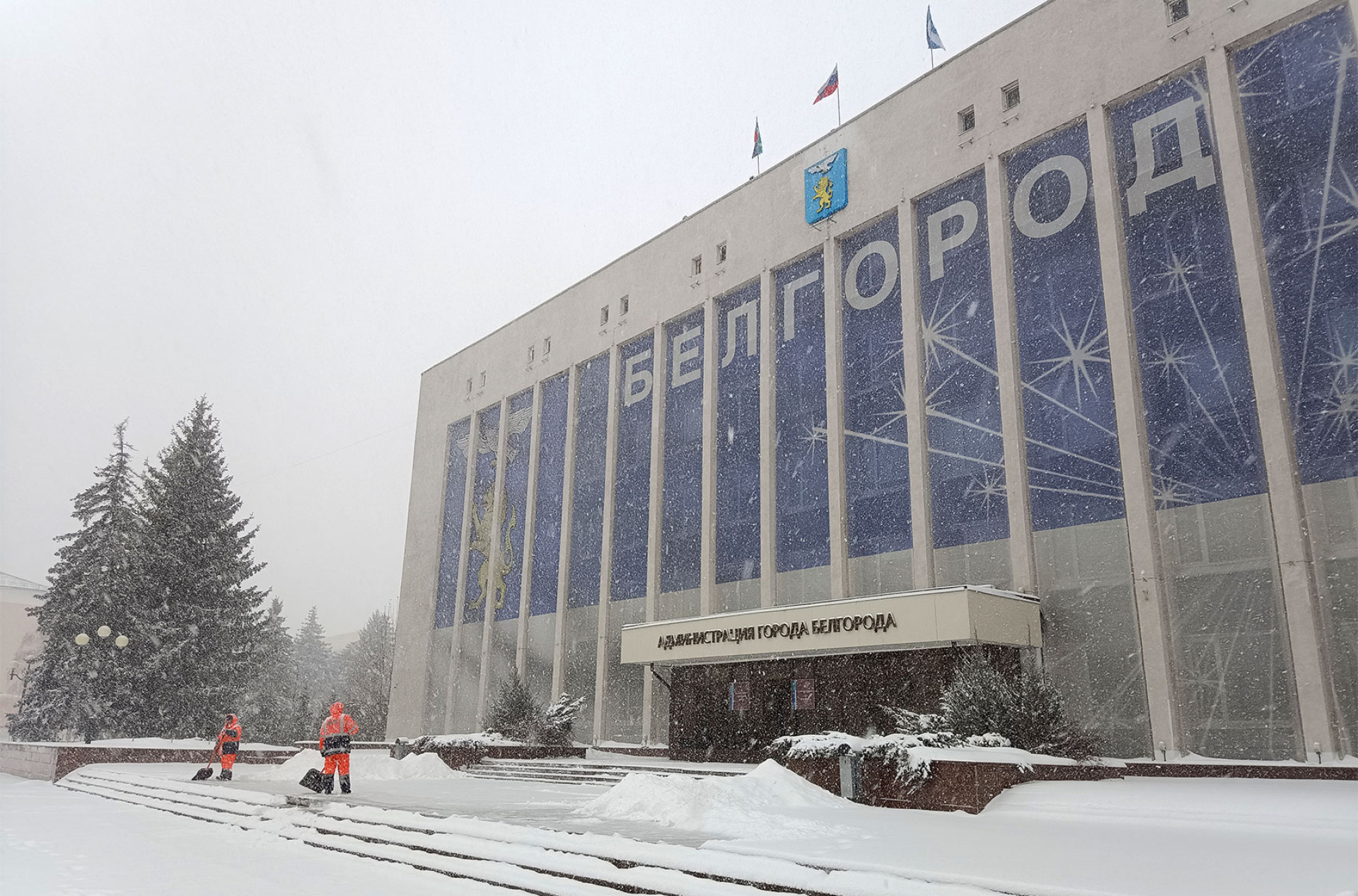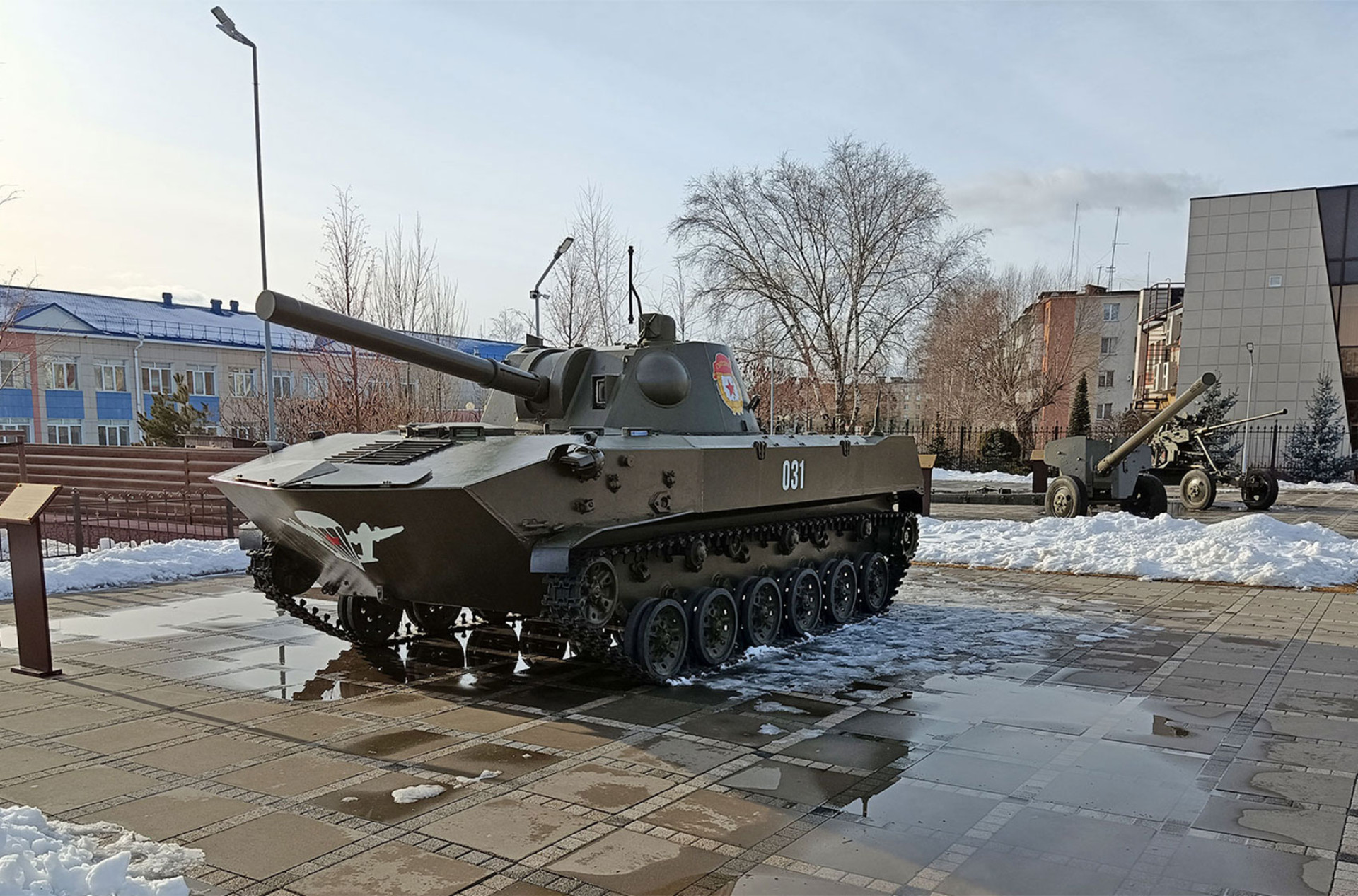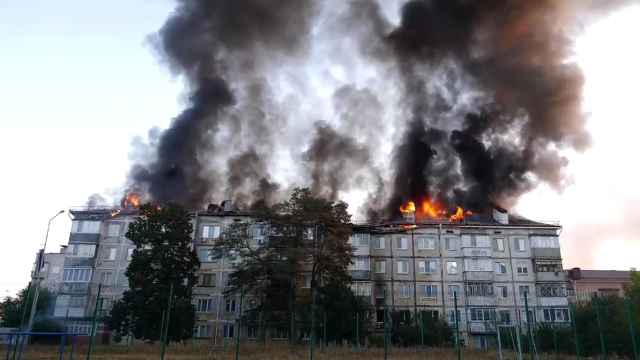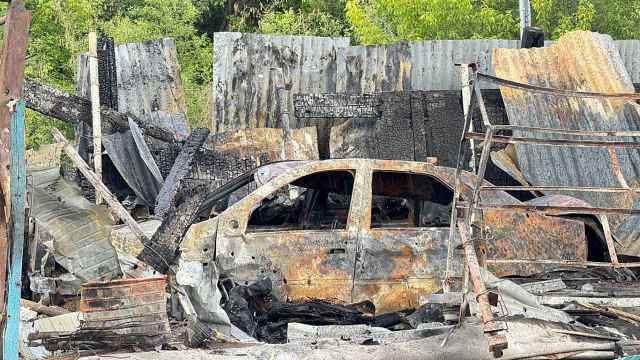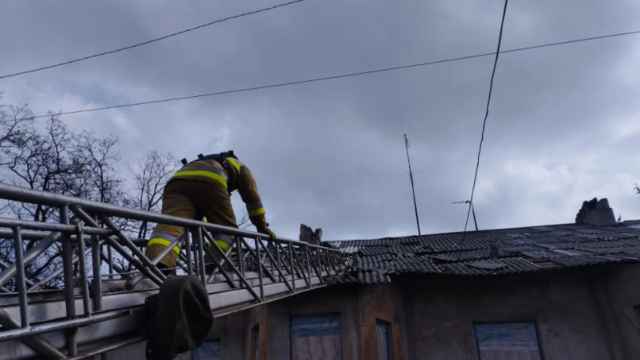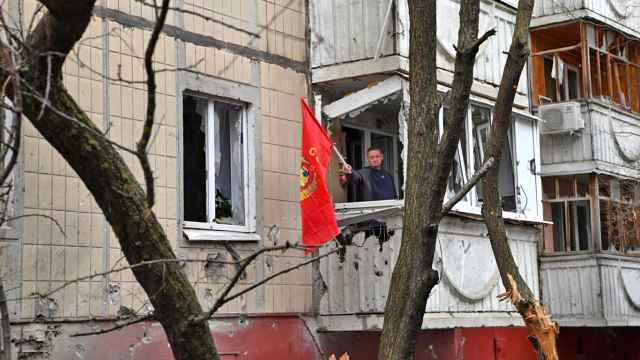SHEBEKINO, Belgorod region — When Russian tanks began rolling through the streets of this small town six kilometers from the Ukrainian border in late February last year, most locals didn’t believe that Russia was about to invade its neighbor.
"It just sounded unbelievable,” recalled Alexander, 27, a local businessman who requested his name be changed for fear of punishment under wartime censorship laws.
It was only in the early morning of Feb. 24, when he saw Grad rocket launchers opening fire in the direction of Ukraine that Alexander understood his mistake.
Life in his hometown, he quickly realized, was about to change forever.
While many Russians still see the conflict in Ukraine as a distant reality, war is a daily occurrence in Belgorod region, one of Russia’s five southwestern regions that border Ukraine. With the Ukrainian army just a few kilometers away, shelling is common.
A year after the invasion, the center of Shebekino was eerily silent on Sunday afternoon.
There were just a few people on the streets, with an occasional passing car decorated with the “Z” symbol that denotes support for Russia’s Armed Forces.
In the town’s deserted market, two men were taking pictures of a crater left by a shell that detonated two days earlier, severely injuring a woman.
"We count on our good luck, hoping that the next shell doesn't fall on our home,” said Yegor, 27, the owner of a perfume shop in a Shebekino shopping mall.
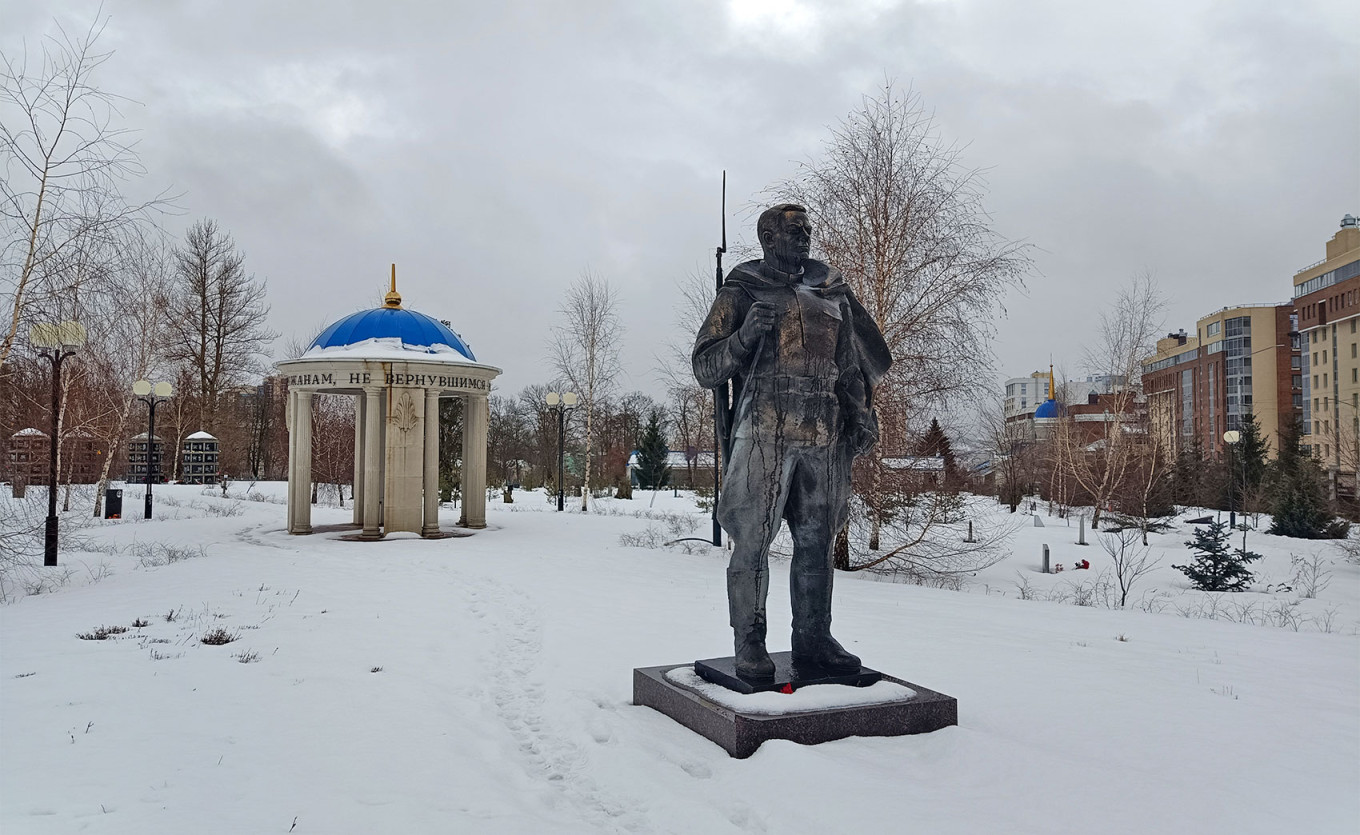
About half of the shops in the mall were closed after businesses closed down or relocated elsewhere in Russia. A few stray dogs lay by the entrance.
Russia’s Belgorod region has suffered more death and destruction than any other Russian region since the invasion with more than 50 towns and villages coming under attack, according to research published earlier this month by independent media outlet Novaya Gazeta Europe.
Ukrainian officials follow a policy of “strategic ambiguity” regarding the reported cross-border attacks, neither confirming nor denying responsibility.
But the threat in Shebekino has intensified after Kyiv’s forces took back most of the neighboring Kharkiv region last September.
Since then, far larger areas of the Belgorod region have been within the range of Ukrainian artillery that — unlike missiles — cannot be intercepted by air defense systems.
Locals have learned to distinguish the sounds of outgoing and incoming fire.
“They are different sounds: it’s a boom when it’s us who are shooting at them, while it’s a more prolonged bang when they shoot at us,” Alexander said.
A few kilometers further from the Ukrainian border, in the regional capital of Belgorod, daily life has changed much less than in Shebekino.
But there are still regular explosions as air defense missiles bring down Ukrainian rockets and signs indicating the locations of bomb shelters are plastered all over the city.
Locals know that air defense systems don't always work perfectly: a piece of a rocket hit an apartment building in the center in July, killing five people.
Sergei, a honey seller at Belgorod’s central market, said the regular destruction and death have become a part of everyday life.
“My friends from St. Petersburg and Moscow can't believe how we got used to this, but we did,” he said in an interview.
According to official statistics, 25 residents of the Belgorod region have been killed and 100 wounded by Ukrainian shelling between the start of the war and the end of last month. At least five of those deaths occurred in Shebekino, according to Novaya Gazeta Europe.
The danger is such that some Russian villages near the Ukraine border have been evacuated entirely, while a volunteer “territorial defense” force was set up last year with the task of repelling a possible Ukrainian attack.
At the same time, however, the local authorities have gone to considerable efforts to preserve a fragile illusion of normal life.
The local government has been providing new apartments for the owners of damaged houses and the injured are reportedly offered medical care in Moscow clinics.
“As soon as a shell damages a house, they clean up everything very quickly,” said Alexander. “They do it to silence dissatisfied people.”
The regional government in Belgorod did not reply to a request for comment.
Despite the constant risk of shelling, open criticism of the invasion is extremely rare.
“If we hadn’t done anything, war would have come to our territory [anyway],” said Yegor, the Shebekino perfume seller. “It could have been much worse.”
The few who strongly oppose Russia’s military operation are particularly careful in expressing their views. In particular, they fear Russia’s wartime censorship law that punishes those found guilty of “discrediting” the Armed Forces with up to 10 years in prison.
Alexander, who belongs to this silent minority, struggles to understand why his neighbors believe state propaganda, which portrays the Ukrainian shelling as a justification of the invasion and proof that Russia is, in fact, defending itself.
“Our artillery shells Ukraine’s territory all night long, then the following day the Ukrainians respond with a single strike and people here start calling them ‘terrorists’ and ‘fascists’,” said Alexander. “It’s absurd!”
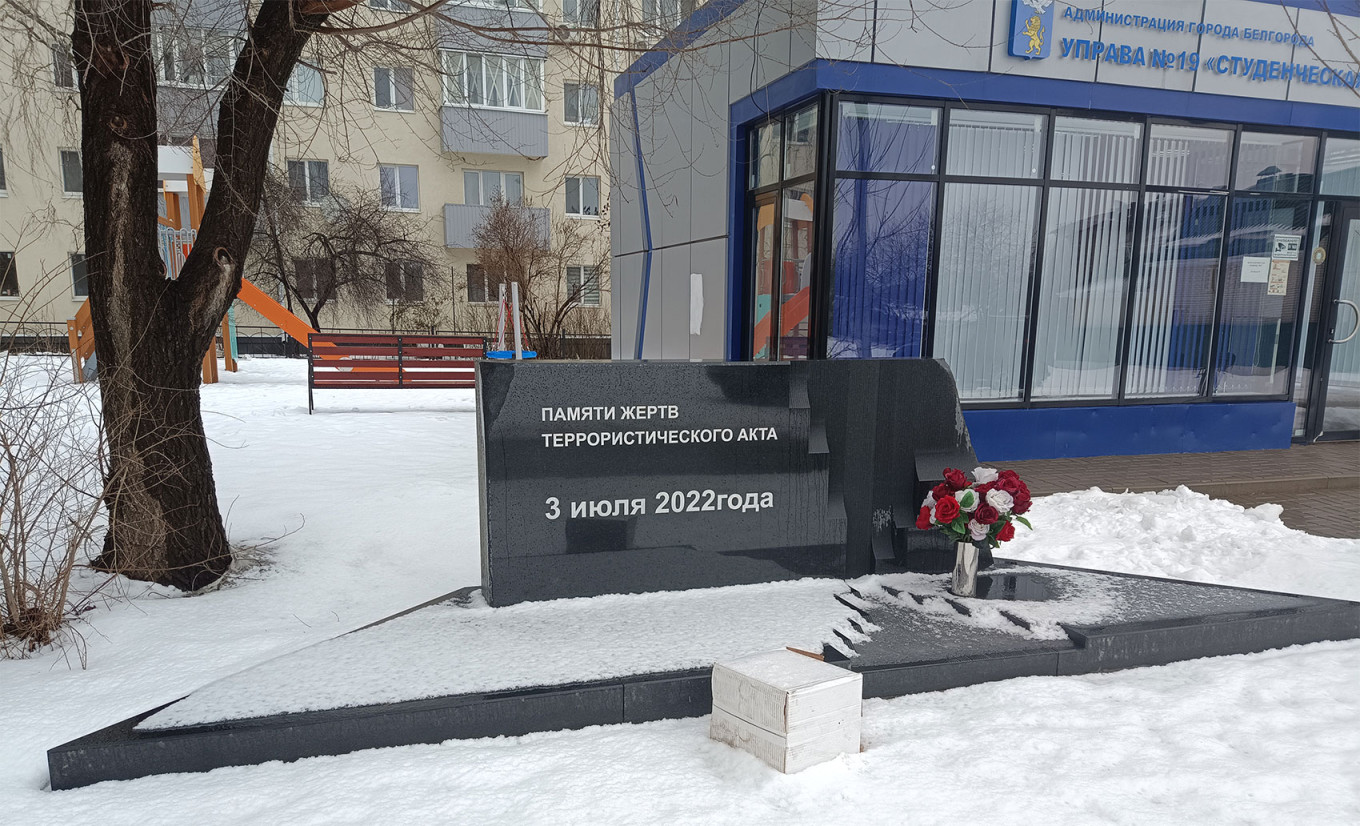
Another major change to daily life in the Belgorod region has been a flood of refugees from Ukraine, particularly after Kyiv’s September counteroffensive in neighboring Kharkiv region.
Many of them were Russia sympathizers who feared being punished as collaborators.
While some quickly relocated to other regions of Russia, others remained in Belgorod in the hope that they will — one day — be able to return to their homes.
“We want to go back, but only under one condition: if Russia is in charge,” said one 55-year-old Ukrainian refugee who requested anonymity to speak freely.
She fled a town in eastern Ukraine with her husband in September. Both of them blame the Ukrainian army for the devastation the war brought to their town.
“I don’t see any prospect of us living in Ukraine,” she said.
Alexei, 41, fled the Ukrainian city of Vovchansk with his wife and four children last year.
He still hopes that Russian forces will return to the offensive.
“The [Russian] soldiers told me we will be back in a couple of weeks,” he recalled of their evacuation from Vovchansk, speaking a mix of the Russian and Ukrainian languages called Surjik.
Russia’s Armed Forces have struggled to achieve any significant success on the battlefield since the start of the invasion. And a spring offensive, which analysts believe began earlier this month, does not appear likely to yield any major territorial gains.
Despite Kyiv showing no desire to occupy Russian land, some local residents said they would be ready to fight if Ukrainian forces did attempt to cross the border.
Refugee Dudkin said he was ready to enlist in the local territorial defense and take up arms against his ex-countrymen.
“I was born in the Soviet Union, so I have always supported Russia,” he said.
A Message from The Moscow Times:
Dear readers,
We are facing unprecedented challenges. Russia's Prosecutor General's Office has designated The Moscow Times as an "undesirable" organization, criminalizing our work and putting our staff at risk of prosecution. This follows our earlier unjust labeling as a "foreign agent."
These actions are direct attempts to silence independent journalism in Russia. The authorities claim our work "discredits the decisions of the Russian leadership." We see things differently: we strive to provide accurate, unbiased reporting on Russia.
We, the journalists of The Moscow Times, refuse to be silenced. But to continue our work, we need your help.
Your support, no matter how small, makes a world of difference. If you can, please support us monthly starting from just $2. It's quick to set up, and every contribution makes a significant impact.
By supporting The Moscow Times, you're defending open, independent journalism in the face of repression. Thank you for standing with us.
Remind me later.



